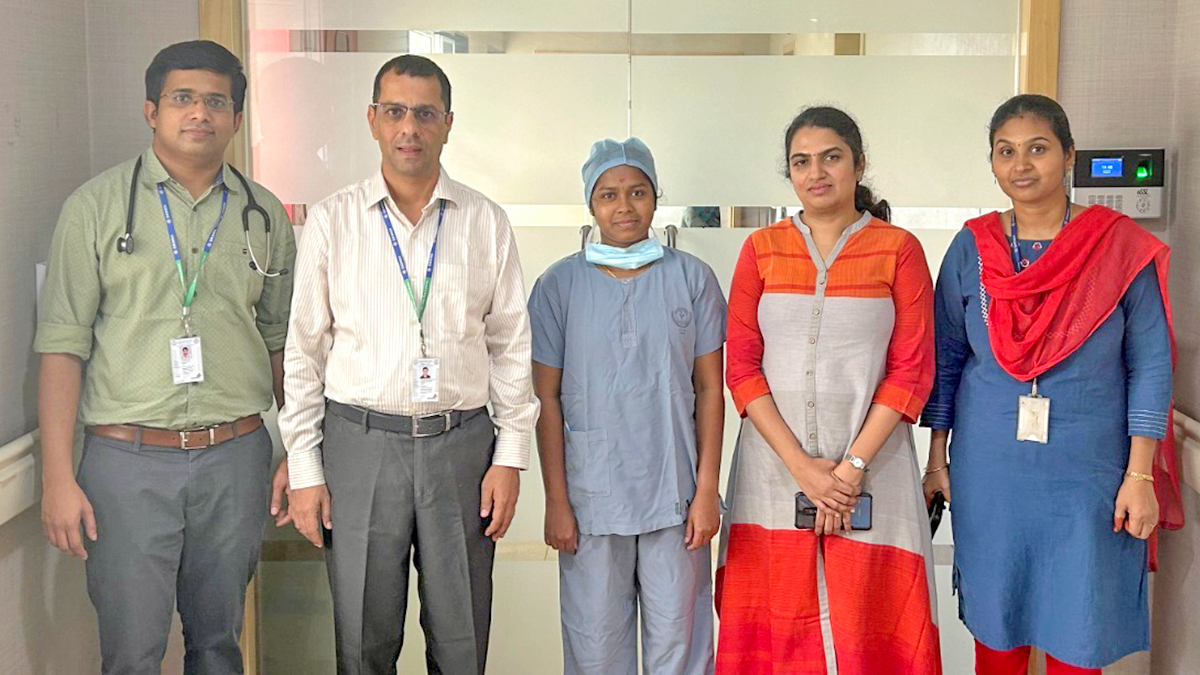In a recent medical achievement, G Kuppuswamy Naidu Memorial Hospital (GKNMH), Coimbatore, successfully conducted the world’s first haploidentical bone marrow transplantation with T cell depletion for MALT1 deficiency, a rare genetic immunodeficiency.
This life-saving procedure was made possible with the support of The Hans Foundation, which bore the entire treatment cost, enabling the patient to access advanced care.
This is the World’s First Haploidentical Bone Marrow Transplantation with T Cell Depletion for MALT1 Deficiency at the Hospital supported by The Hans Foundation.
Ganesh (name changed), a ten-month-old boy from Karur, Tamil Nadu, was diagnosed with MALT1 deficiency after suffering from recurrent fungal and viral infections, including flexural candidiasis and cytomegalovirus.
This rare disorder results in a defective immune system from birth. Tragically, Ganesh’s three years older siblings succumbed to similar infections before their first birthday due to the lack of a diagnosis and access to appropriate treatment.
“The hematopoetic stem cell transplant was challenging on many levels. The child had developed immunity (donor-specific antibodies) against both parents who were the only possible donors. After desensitization (Removing the antibodies in the child’s body using Rituximab immunotherapy, plasmapheresis and donor-derived platelets) the antibody titers decreased.
The stem cells from the mother were given after the process of ex-vivo T cell depletion (TCR alpha beta depletion). Post-transplant we had to tackle cytomegalovirus infection even before engraftment (when the white blood cells derived from donor cells start increasing in the child’s body) as the drug ganciclovir used for treatment is toxic to bone marrow function. To help with immune recovery, the child received donor-derived white blood cells responsible for immune recovery (CD45 RO or memory T cells) at periodic intervals,” stated the hospital.
The hospital also noted that “desperate to save their only surviving child, Ganesh’s parents sought care at GKNMH, where a multidisciplinary team of specialists took charge of his case. As there were no HLA-matched donors available, a haploidentical (half-matched) hematopoietic stem cell transplantation was performed, with Ganesh’s mother serving as the donor. This procedure, conducted at such a young age, was complex and challenging due to the baby’s developing immunity against the donor stem cells.”
“A specialized team of experts, including a Pediatric Hematologist, Pediatric Intensivist, and Pediatric Infectious Disease Specialist, worked together to manage the transplant. (The entire process for bone marrow transplant including workup and hospital stay was almost two months). Following the stem cell infusion, the donor cells successfully began producing white blood cells responsible for immunity in Ganesh. To further support his recovery, he was given memory T cells from the donor and immunoglobulin replacement therapy for three months post-transplant. Over time, Ganesh cleared all infections, showed significant improvement in his vitiligo, and his immune system fully recovered. He is now completely cured and leading a healthy, normal life,” according to the hospital.
This transplant marks a significant milestone as it is the first of its kind in India for MALT1 deficiency and the first globally to use the technique of donor T cell removal from stem cells and add back of memory cells for antiviral immunity.
The Hans Foundation’s unwavering support made this transformative medical intervention possible, offering hope and healing to Ganesh and his family.




